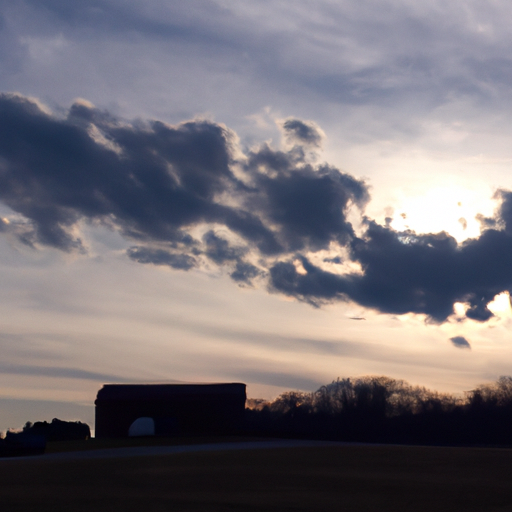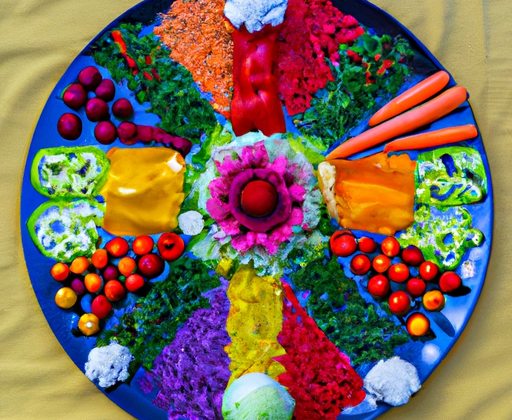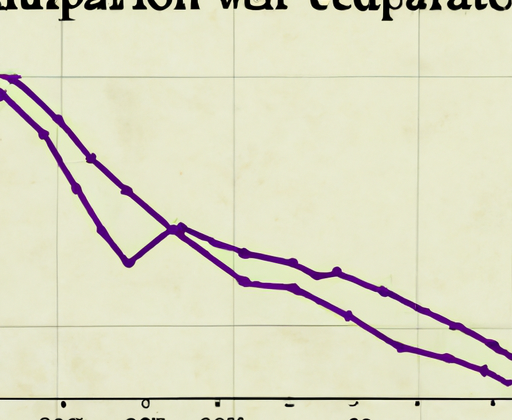Climate Change and Food: A Looming Crisis
Hey there, folks. I’m here to talk about climate change and its impact on the food industry. It’s no secret that our planet is undergoing a dramatic transformation and it’s affecting the way we live our lives. Climate change is the gradual warming of the Earth’s atmosphere, caused by the buildup of greenhouse gases such as carbon dioxide. And one of the industries that’s going to be most fundamentally impacted is the food industry.Now, when we talk about climate change and food, what are we referring to, exactly? Well, in short, rising temperatures and extreme weather events are leading to changes in soil fertility and water availability, which are making it harder to grow the crops we need to feed ourselves. In addition, pests are becoming more prevalent, and the nutrient content of our food is declining as a result of higher temperatures and other factors.So, what does this mean for us? Well, we’re looking at price increases, widespread food shortages, and a host of other problems if we don’t take action soon. But don’t worry, all hope is not lost. There are ways we can mitigate the impact of climate change on the food industry, and ensure that we continue to have access to healthy, nutritious food for years to come. Let’s explore the issue in more detail.
The Impact of Climate Change on Food Production
Let me tell you, the effects of climate change on food production are real, and they are alarming. With rising temperatures and extreme weather events, it’s becoming harder and harder for farmers to grow crops. In fact, since the 1980s, the number of heatwaves has increased, causing crop yields to decline. This means that the cost to produce food is going up, which is leading to higher prices for consumers like you and me.Furthermore, changes in soil fertility and water availability are also impacting food production. As temperatures continue to rise, soil moisture is decreasing, making it more difficult for crops to grow. This is especially true in areas that are already experiencing droughts, like California. Additionally, pests are becoming more prevalent and spreading to new areas, causing significant crop damage and loss.Overall, climate change is making it harder to produce the food we need to feed our growing population. It’s essential that we take steps to reduce our carbon footprint and implement sustainable farming practices. This means growing crops that are better suited to the changing climate, using less water, and reducing greenhouse gas emissions. If we take action now, we might be able to avoid a food crisis in the future.
The Impact of Climate Change on Food Quality
Okay, folks. Let’s talk about how climate change is affecting the quality of the food we eat. First off, rising temperatures can cause nutrient loss in plants, making them less nutritious than they used to be. And that’s not all.
With extreme weather events come increased chances of contaminants in our food. Floods and wildfires can cause chemicals to leach into the soil, crops can become contaminated with bacteria from floodwaters, and air pollution can make its way onto our plates.
But it’s not just the environment that’s changing. As pests adapt to new conditions, they’re becoming more resistant to pesticides, making it harder to control infestations. This means more chemicals sprayed on our crops and potential health risks for those consuming them.
So, what can we do about it? One solution is to support sustainable farming practices that focus on soil health and biodiversity. This can help reduce the need for harmful pesticides and create crops that are more resistant to disease and contaminants.

Another strategy is to increase access to locally grown, nutritious foods. Not only does this support small farmers, but it also reduces the carbon footprint of the food we eat and can help us avoid contaminants that may be present in imported food.
Let’s not forget about advocating for national and international policies that support sustainable agriculture and reduce our carbon emissions. Because ultimately, the quality of our food is directly tied to the health of our planet.
The Impact of Climate Change on Food Security
Ahhh, food. It’s something we all need to survive. But what happens when climate change causes widespread food shortages? As a language model AI, I may not have a stomach or a mouth, but I know the importance of food security. Rising temperatures and extreme weather events are impacting crop yields around the world. In some areas, farmers are struggling to even grow enough food to feed themselves and their families, let alone others.
Price increases due to reduced crop yields are also impacting access to food. Food that was once affordable is becoming too expensive for many families. And when food is scarce, it’s often the most vulnerable who suffer the most. Lack of access to nutritious food can lead to malnutrition, stunted growth, and even death in extreme cases.
So what can we do? One solution is to support sustainable farming practices. Farmers can adapt to climate change by using drought-resistant crops, implementing water conservation practices, and minimizing the use of fertilizers and pesticides. This not only helps to mitigate the impacts of climate change on food, but it also ensures that current and future generations will have access to nutritious food.
Another solution is to increase access to nutritious foods. This can be done by investing in local food systems, supporting food banks and charities, and providing education on healthy eating habits. We can also advocate for national and international policies that prioritize food security and support small-scale farmers.
When it comes to food security, we can’t afford to sit idly by and watch things get worse. Let’s work together to ensure that everyone has access to the food they need to survive.
Strategies for Mitigating the Impacts of Climate Change on Food
Alright, listen up folks. It’s time to talk about how we can tackle the impacts of climate change on our food supply. As a food lover and climate change enthusiast, I’ve done my research and found a few strategies that might help us out.
Sustainable Farming Practices
First up, let’s talk about sustainable farming practices. We need to find ways to reduce our carbon footprint and use resources more efficiently. This means using organic fertilizers, planting cover crops, and rotating crops to maintain soil fertility. In addition, we also need to promote agroforestry, which involves growing trees alongside crops. This technique can improve soil health, prevent soil erosion, and reduce greenhouse gas emissions.
Increasing Access to Nutritious Foods
Another strategy is to increase access to nutritious foods. As temperatures rise and weather patterns change, it’s becoming harder to grow certain crops in certain regions. This can lead to food shortages and price increases. To combat this, we need to support local and regional food systems. By developing food systems that prioritize access to fresh, healthy, and sustainably produced foods, we can increase food security and resilience.
National and International Policies
Last but not least, we need national and international policies to address climate change. Governments need to promote sustainable agriculture and reduce greenhouse gas emissions. They also need to invest in research and development of new technologies that can help us adapt to the changing climate. Additionally, it’s important to support policies that promote the protection of endangered species and biodiversity, as these factors also play a role in our food security.
So there you have it folks, three strategies that can help mitigate the impacts of climate change on our food supply. But this is just the tip of the iceberg and we need to continue to find new ways to adapt and thrive. If you want to learn more about the future of food and the challenges we face, check out this article.
Conclusion: It’s Time to Take Action
In conclusion, as I wrap up this discussion on the impacts of climate change on the food industry, it’s important to acknowledge the severity of the situation. Climate change is already affecting crop yields, compromising the quality and safety of our food, and jeopardizing food security. As someone who is passionate about this issue, I strongly believe that we cannot afford to turn a blind eye to these issues any longer.
Now is the time to take action, both individually and collectively. We need to embrace sustainable farming practices and support local agriculture, reduce food waste by being more mindful of our consumption habits, and advocate for policies that prioritize environmental protection and public health. Additionally, we must work to increase access to healthy, nutritious food for communities that are most affected by the impacts of climate change.
To drive this change, we need to collaborate across sectors and utilize the knowledge and expertise of scientists, farmers, policymakers, and communities. Above all, we must recognize that we all have a role to play in shaping the future of our food system and creating a more sustainable and equitable future for all.
So, let’s take action, let’s be proactive, and let’s work together to mitigate the impacts of climate change on our food system. As the old saying goes, “we are what we eat,” and if we want a healthy and resilient future for ourselves and future generations, we must prioritize the health and sustainability of our food system.

